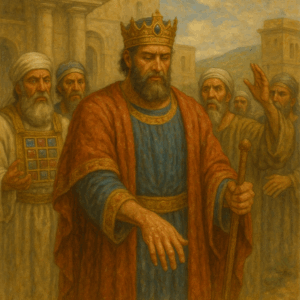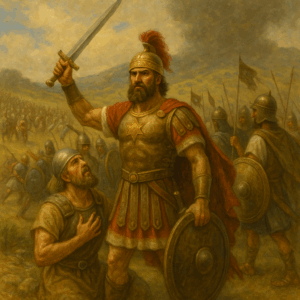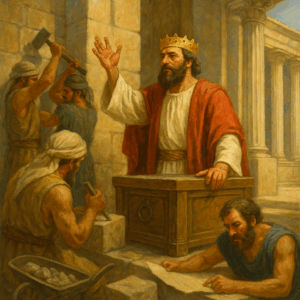Introduction.
As we delve into Exodus Chapter 11, we find ourselves at a critical juncture in the narrative of the Israelites’ journey to liberation. This chapter, though brief, sets the stage for one of the most dramatic and significant events in the Bible: the final plague and the subsequent exodus of the Israelites from Egypt. Let’s explore the profound implications of this chapter and its enduring legacy in religious history.
The Announcement of the Final Plague.
The chapter begins with God informing Moses about the tenth and final plague – the death of the firstborn in Egypt. Unlike the previous plagues, which were demonstrations of God’s power and judgment against the Egyptian gods, this one strikes at the heart of every Egyptian household, from the Pharaoh’s palace to the humblest dwelling. It’s a decisive act that underscores the severity of Pharaoh’s resistance and the extent of God’s determination to liberate His people.
The Hardening of Pharaoh’s Heart.
Exodus 11 also highlights a recurring theme in the Exodus narrative: the hardening of Pharaoh’s heart. Despite the severity of the impending plague, Pharaoh’s heart remains unyielding. This hardening serves a dual purpose – it exhibits Pharaoh’s obstinacy and the sovereignty of God in shaping historical events. It’s a powerful reminder of the consequences of defiance against divine will.
The Preparation for the Exodus.
This chapter subtly begins to shift the focus from the plagues to the preparation for the Israelites’ departure. God instructs Moses to tell the people to ask their Egyptian neighbors for silver and gold items. This act of acquiring wealth not only fulfills God’s promise to Abraham that his descendants would leave captivity with great possessions but also signifies the Egyptians’ implicit acknowledgment of the Israelites’ dignity and God’s supremacy.
The Foreshadowing of Passover.
While the actual institution of the Passover is detailed in the following chapter, Exodus 11 lays the groundwork for this pivotal ritual in Jewish tradition. The impending doom of the Egyptian firstborn contrasts with the safety promised to the Israelites, who will mark their homes in a specific way to be spared. This distinction sets the stage for the Passover, a lasting ordinance that commemorates God’s mercy and the Israelites’ deliverance.
Legacy and Lessons.
Exodus Chapter 11 is more than a prelude to the Israelites’ freedom; it’s a chapter rich with theological and moral lessons. It challenges us to reflect on issues of justice, the consequences of pride and stubbornness, and the nature of divine intervention. In the Christian tradition, the Passover event foreshadowed in this chapter is seen as a symbol of Christ’s sacrificial death and resurrection, offering salvation to mankind.
As we reflect on Exodus Chapter 11, we are reminded of the power of faith, the inevitability of divine justice, and the hope that liberation brings. This chapter, though brief, is a profound narrative that sets the tone for the climax of the Israelites’ journey from bondage to freedom, a theme that resonates through generations and across cultures.






